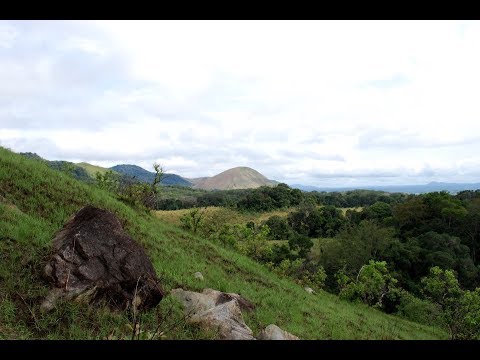
Nestled on the west coast of Central Africa, Gabon is a country with a rich tapestry of rainforests, coastal lagoons, and an astonishing variety of wildlife. Its biodiverse ecosystems and efforts at preserving natural heritage make it an exciting destination for ecotourists and researchers alike. This article delves into several aspects of Gabon, from its geography and biodiversity to its economy, culture, and initiatives towards environmental conservation.
#### Geography
Gabon stretches over an area of approximately 267,667 square kilometers. It is bordered by Equatorial Guinea to the northwest, Cameroon to the north, the Republic of Congo on the east and south, and the Atlantic Ocean to the west. The country’s coastline spans about 800 kilometers along the Gulf of Guinea where Libreville, the capital city, is located.
The terrain is characterized by a narrow coastal plain; a hilly interior; savanna in the east and south; and dense rain forests covering much of its landscape. This diverse geographical makeup supports one of the most varied climates and ecosystems in West Africa.
#### Biodiversity
Gabon is celebrated for its extensive natural parks which cover about 10% of the country’s land area. These include thirteen national parks established in 2002 by President Omar Bongo Ondimba as part of an ambitious conservation effort. One notable park is Loango National Park often referred to as “Africa’s Last Eden,” where you can witness elephants and buffalos on its beaches or hippos surfacing in its waters.
Forests dominate Gabon’s landscape making it one of the most forested countries in Africa. This has made it a sanctuary for numerous species including lowland gorillas, chimpanzees, over 500 species of birds, and various endemic plants which flourish undisturbed due to low human density throughout these regions.
#### Culture
Gabon’s population is as diverse as its ecosystem consisting mainly of Bantu tribes such as Fang, Myene, Teke amongst others along with French being used extensively due to colonial history that ended when Gabon gained independence from France in 1960.
Cultural expressions are vibrant with traditional music styles like Tsogho from Ndjemane or modern genres incorporating international influences. Annual festivals such as Tchimounga Festival celebrate local folklore through dance performances showcasing rich traditions that have been passed down generations.
#### Economy
Despite being small in population (around two million), Gabon enjoys one of Sub-Saharan Africa’s highest per capita incomes largely due to its petroleum-based economy supplemented by revenues from logging industry though this has brought about concerns regarding deforestation rates affecting local communities depending on these habitats.
In recent years government has been pushing towards diversifying economic activities particularly through promoting tourism focusing on eco-tourism which offers sustainable alternatives contributing both towards economic growth while preserving invaluable biodiversity resources.
#### Environmental Initiatives
Realizing impact extensive oil extraction poses environment coupled deforestation related logging activities; Government initiated several measures aimed conservation sustainability such areas include program undertaken transform economy into more diversified less reliant carbon-heavy industries recognition ecological value maintaining protected land areas.
Furthermore education awareness programs aimed locals tourists alike highlight importance conserving bio-diverse environments like those found within borders promoting respectful interaction between human wildlife ensuring mutual benefits both parties involved.
### Conclusion
Gabon stands out not only because significant strides taken towards environmental protection also cultural richness diversity offering us glimpse into life Central African nation striving balance between development preservation one planet’s last untouched paradises endeavoring serve model other nations similar predicaments seeking sustainable ways forward ensuring future generations might enjoy natural wonders we today take granted.
